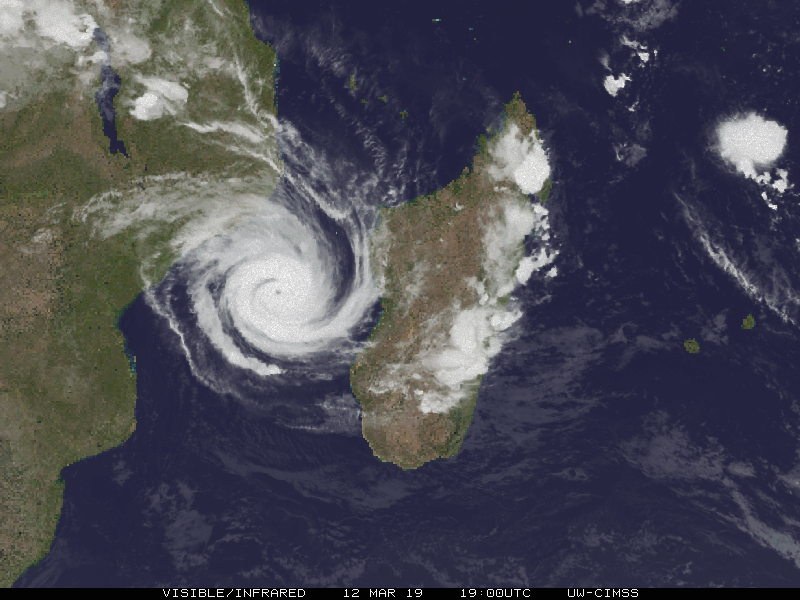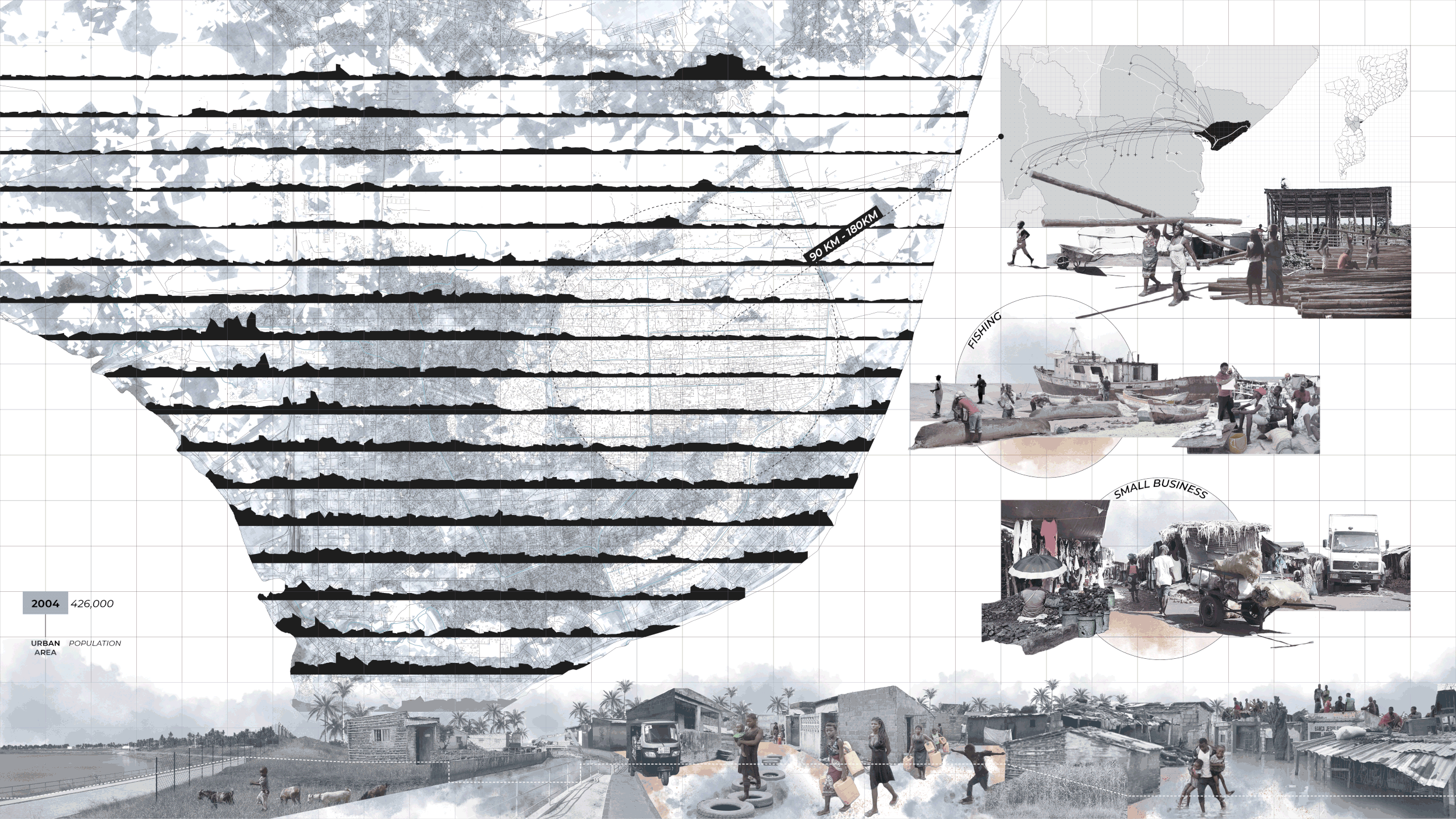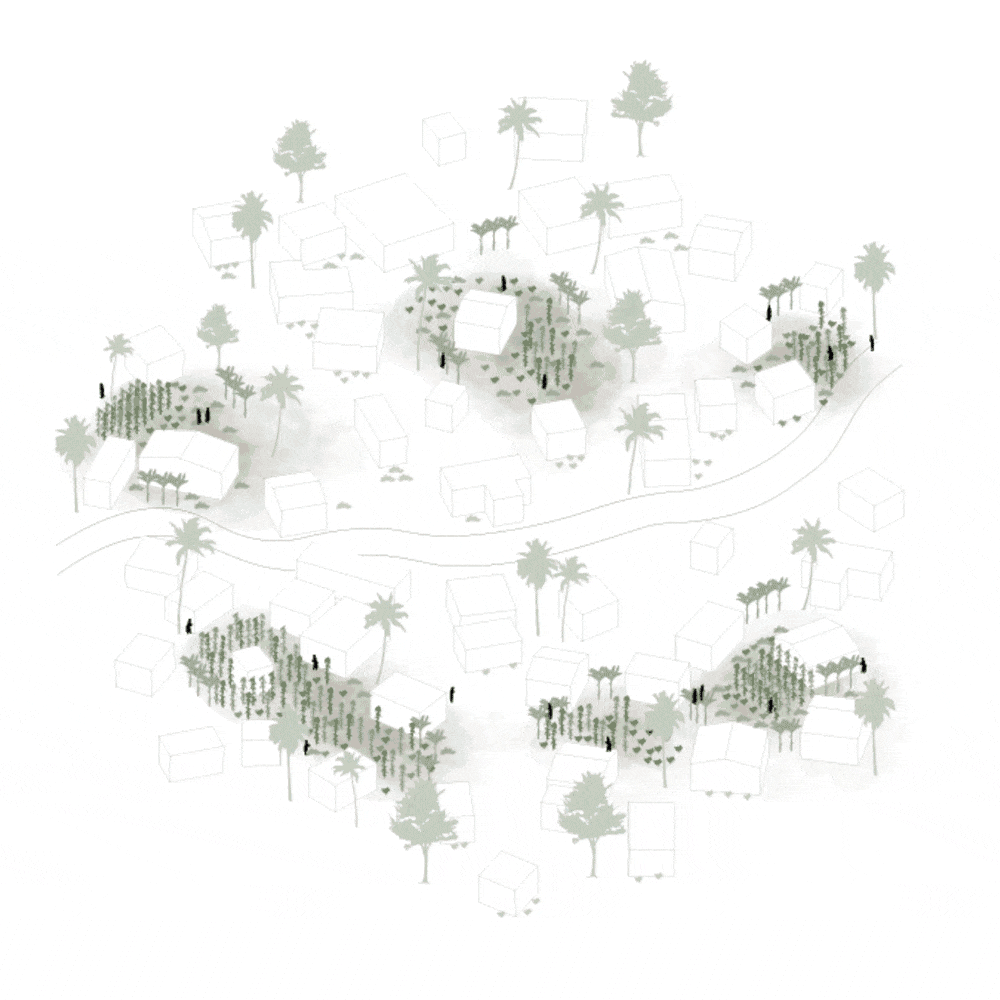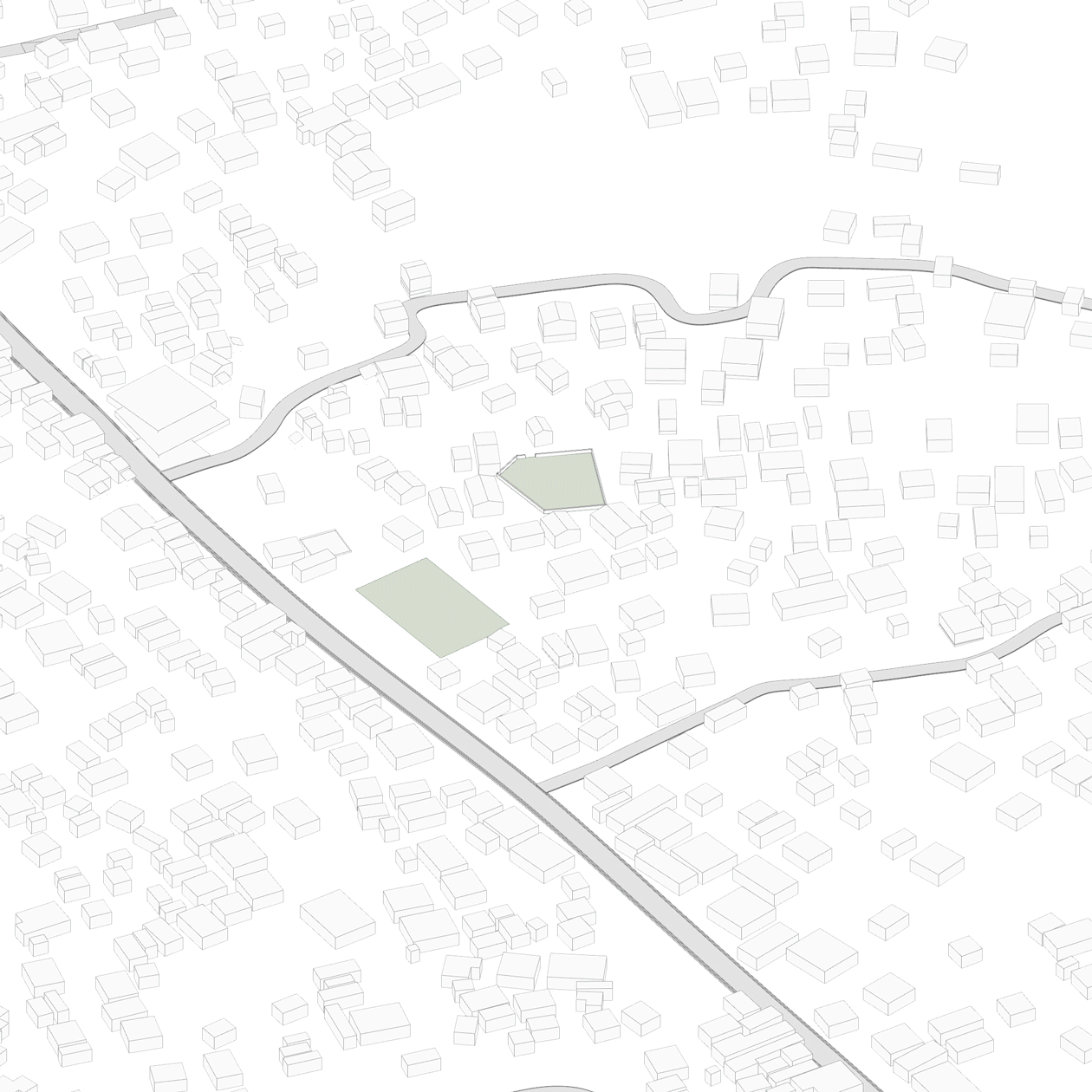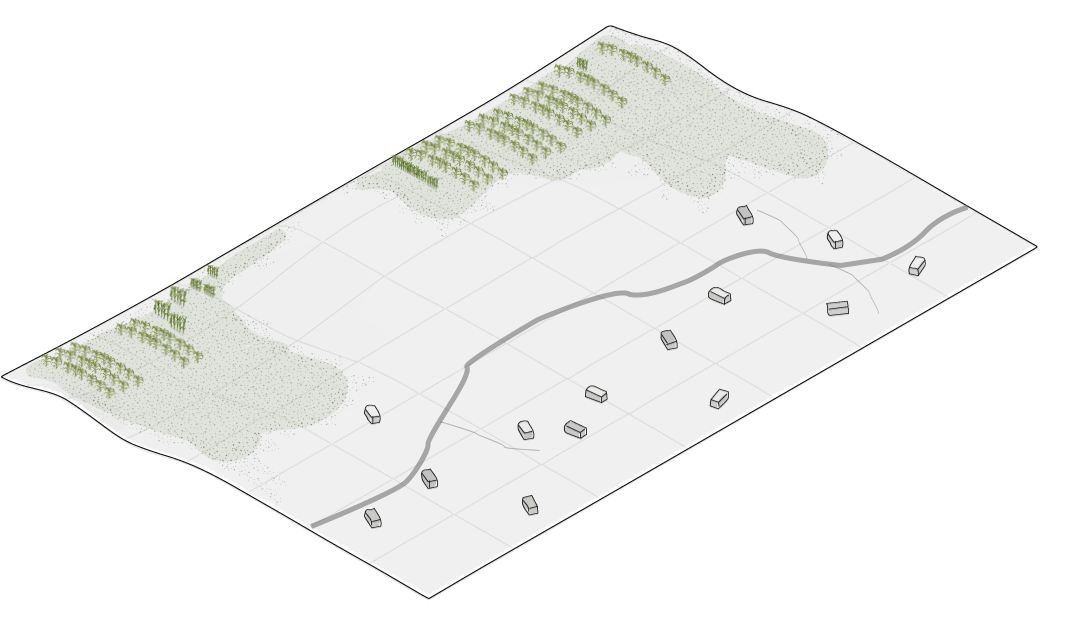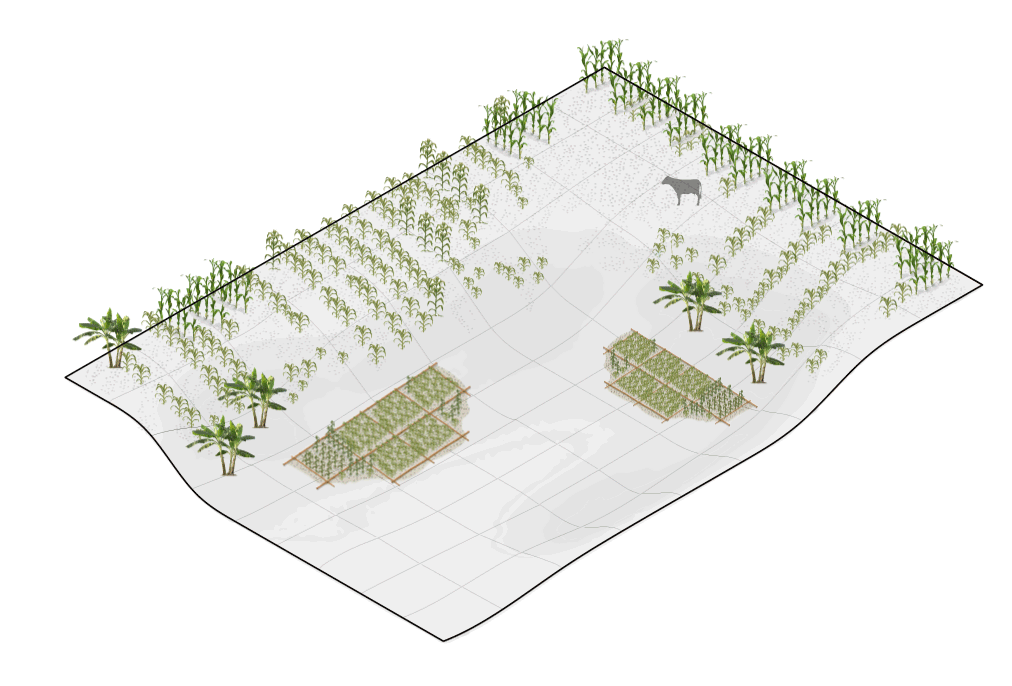
Seeding the Machamba
2020
Collaboration w/ Ashwin Nambiar, Joy You-Chiao Wu, Ting Zhang, and Xinyue Liu
Columbia GSAPP
Beira, Sofala. Mozambique
The city of Beira, in the fertile lowlands of central Mozambique, is located in the delta of the Pungwe River as it meets the Indian Ocean. Founded in 1887 as a port city, Beira is only a few meters above sea level. Rapid population growth has escalated from 42,265 inhabitants in 1950 to 530,604 in 2019, with an expected increase of an additional 250,000 residents by 2030. United Nations - World Population Prospects
In March of 2019, Cyclone Idai ravaged the city. It has been the worst storm on record in Mozambique, with heavy rains and strong winds that led to flash flooding, hundreds of deaths, and massive destruction of property and crops. In Beira alone, 90% of the buildings were damaged.
In its aftermath, a major humanitarian crisis unfolded with hundreds of thousands of people displaced as central Mozambique was transformed into a vast inland lake. A year later, recovery is ongoing and food insecurity remains widespread.
Beira has an extensive and integrated system of traditional agriculture that is under threat. Seeding the Machamba conceives this agricultural system as a productive and preventative flood infrastructure. We envision that this agricultural network could coordinate communities, organize the city, and be the key to recovery and ongoing resilience.
GOALS
Consolidate and organize cooperatives at a city scale.
Protect social and ecological capital.
Empower women in agriculture.
Diversify income and create job opportunities.
Integrate adaptive, nature-based infrastructure.
Cyclone Idai
“Flooding” is a consequence of unplanned sprawl into low-lying agricultural land. The current resettlement plan disregards people’s livelihoods and defines “risk zones” in the city, instead of recognizing the potential in such places. There is a need for elevational programming that integrates with water, for future cyclones and urban growth.
The Roots of Agricultural Grounds / Since before the colonial times, the agricultural practices were embedded in the livelihoods of the people from Beira.
Machambas have been mainly managed by women and are embedded in the day to day life of the people from Beira. These productive spatial devices are a result of collective efforts, and bring communities together. Smallholder farmers account for 95% of the country’s agricultural production.
What if the machambas worked as a dispersed resilient system?
We see the dispersedness of the machambas as an opportunity to become one water holding system for the city, following the natural streams.
Elevational Programming
Based on this water-holding system we propose three community based organizing frameworks to facilitate urban transformation according to different social contexts. The overall objective is to strategically retreat to safer zones combined with community empowerment and economic development.
High Ground
The machamba as a unit of change
High Ground machambas in time
Mid Ground
Land stewardship and upscaled agriculture
Resilient boyant agriculture in water holding areas
Low Ground
Low Ground machambas in time

